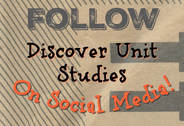That memory has stayed with me for all these years. I wonder if my teacher was aware of how valuable that moment was for the minds of her students compared to a well-planned out lesson in the classroom. There was so much to learn. As I reminisce, I know what I experienced on the grass that day was a real educational moment not a forced concept or a test given to me just so the teacher could check a box to say they taught me science. Input, discovery, and experience are key to laying a strong educational foundation for young children. Tests can create unneeded stress and pressure on a child who is just beginning to learn about the many fascinating subjects of study. This stress can do more harm than good at a young age. While there is a general guideline for developmental growth patterns, if you look closely, you will also see that there can be valleys of differences between a group of students. Each child boasts a unique set of character traits, gifts, talents, skills, learning styles and abilities, any parent or educator would agree. I truly believe that young children should have an education that focuses on input, hands-on discovery and experience. By input I mean that a teacher or parent should be giving their student daily opportunities to learn by seeing, touching, hearing, exploring and discovering anything that interests them. Where information, ideas, pictures, words are put into their mind rather than expecting output like a standardized test. This is exactly how I educated my daughter who is doing college as a junior in high school and plans to graduate with an Associate Degree. As a young child, I would always ask her what she wanted to learn about at the beginning of the year. We would make a list together then I would start planning real learning moments she would most certainly enjoy. One year she wanted to learn about rocks and volcanos. All of her learning was based around this one theme and she thoroughly enjoyed it. I would focus on inputting all the information I could about it through books, videos and field trips. Then I would have her make a book about what she learned. Never did I give her a test to prove she retained the information because the proof was in her projects and her curiosity to learn more. I could see she was learning and I did not need to test her to know this. Her education was not limited to the walls of a classroom, boring lectures, 2 dimensional textbooks, and a fill-in-the-bubble test. This is an unnatural way to learn.
Tests are stressful and add unnecessary pressure to young moldable minds which can create an unpleasant taste for education. We need not to stifle our children with mindless questions and bubbles. The world is big when you are 5. There are so many things that are a mystery to you at this age. So many things that are awaiting discovery, why waist it on giving them a test. We should be reading to them and talking with them. Letting them play and explore for more than just 15 minutes of recess twice a day. I do believe there is an age, time and place for testing, just not when they are so young and innocent and have years of learning ahead of them. We should be walking beside our young ones giving them a joy and a love for learning. We all know that there are no two people who look exactly the same. We all have different colored hair, different facial features, and skin color. Even identical twins have their differences. In the same way, there are no two people with the same character traits, skills, abilities and learning styles. Because of these differences some children test well and others do not. We should not be meditating on the idea of whether or not we should give our 5 year old children a test before they enter kindergarten. We should be spending our time creating a naturally rich educational environment. Children should be free to learn without being compared to another child. They should be free to learn about things that interest them without being categorized and placed on a standardized scale when in fact we all know that we possess different abilities. Educators should bring out the best in each child and help them discover who they are and what they are good at. A child is a person between birth and full growth. They are young, innocent and inexperienced. They are also curious, inquisitive and want to explore. They have energy, youth and vigor. They want to experience and understand the world around them. They want to run, climb, sing and dance. Why would someone look at a 5-year-old child and say “we should give them a standardized test to see if they know their colors, numbers, shapes and letters”. Would you place a white canvas in a frame to display its beauty before you paint? no, that would be superfluous. You would first paint then display. Children are a white canvas, we should not stop them prematurely to “test” but our energy should instead be focused on painting experience in their lives. Children need to play more not school more. According to the University of Cambridge in England, “Studies have compared groups of children in New Zealand who started formal literacy lessons at ages 5 and 7. Their results show that the early introduction of formal learning approaches to literacy does not improve children’s reading development, and may be damaging. By the age of 11 there was no difference in reading ability level between the two groups, but the children who started at 5 developed less positive attitudes to reading, and showed poorer text comprehension than those children who had started later.” (2013). Standardized tests given in kindergarten are unnecessary and do not prove beneficial. They need more time for playing and natural learning moments that capture their curiosity. When we test young children, we are simply robbing them of their childhood and giving them a bitter taste for education. We are treading on dangerous water when we toy with an idea such as, should children be tested before entering kindergarten! With all of that, I question the authority and wisdom of our public school system and their method of institutionalizing our young children. I question their method of putting creative minds into boxes of conformity. If we want thinkers, creators, engineers, doctors, leaders, artists and people with integrity to lead our country, their unique education should start when they are young but unfortunately, they have missed the mark. I believe that we have put a bad taste in their mouth stifling generations of children causing them to turn away from education and turn to other mindless endeavors. There are several ways to create a “hate” of learning. You can do this by forcing young children to do mindless busy work in a textbook, make them endure boring lectures at a young age when there is so much discovering to do, force them to sit still at a desk when all they need is to burn off that youthful energy bottling up inside and give them a standardized test. I definitely stand firm on the side of the fence that is against standardized testing at a young age. I am always frazzled when I hear a child say they hate school. I am angry at the form to which they were molded and disappointed at a country who continues to believe that more form, structure, schooling and testing is the answer to trouble kids who hate school or for those who are falling behind. It’s not the kid it’s the system. Our schooling system needs to change their standards for early childhood education and stop stifling our children’s love for learning. Education should be fun and should be tailored to each child’s interests. Instead of schooling our children earlier and testing at a younger age we should be creating natural learning moments and a positive learning environment. I am against standardized testing for early childhood and I do not believe children should be tested before entering kindergarten. Let children be children.
0 Comments
Leave a Reply. |
Author
Deanna Holm Archives
May 2022
Categories |
HomeFree Lesson Plans & WorksheetsTeaching Tips
Free Printables & Charts
Policy |
Blog
Store
Contact Us
|



 RSS Feed
RSS Feed
